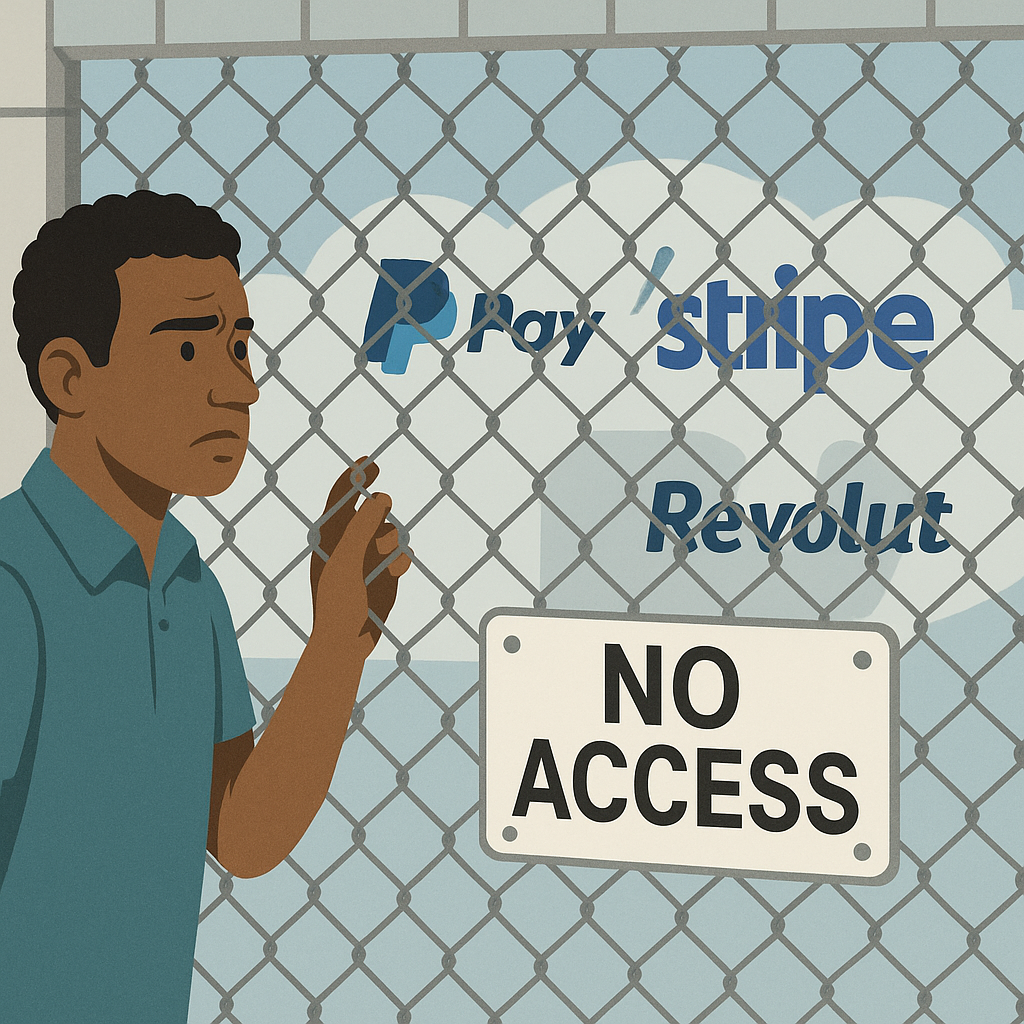
PHILIPSBURG — For entrepreneurs across the world, building an online business has never been easier. Platforms like PayPal, Stripe, Revolut, Wise, and N26 give businesses instant access to international payment processing, e-banking, and digital financial services. But on St. Maarten, a troubling reality remains: local entrepreneurs are locked out of this global ecosystem.
Because of St. Maarten’s ongoing financial blacklisting status, local businesses cannot register with many of the world’s leading payment gateways or fintech platforms. For many entrepreneurs, this is more than a minor inconvenience — it is a barrier that stifles innovation, growth, and international competitiveness.
Trapped in the Old Economy
From tech start-ups to e-commerce ventures and service-based businesses, entrepreneurs on St. Maarten find themselves trapped in outdated financial structures. While their peers abroad can launch an online store in an afternoon — integrating PayPal or Stripe with ease — St. Maarten-based entrepreneurs face endless roadblocks:
- International banks and fintechs flag St. Maarten as high-risk.
- Popular platforms reject applications based on local residency.
- Even when access is granted, accounts are often frozen or shut down without notice.
As one local entrepreneur put it: “We spend more time finding ways to receive payments than we do actually building our businesses.”
The Global Playing Field Is Not Level
This lack of access means St. Maarten’s entrepreneurs cannot fully participate in the global digital economy. They cannot easily sell products online, process international bookings, or scale their businesses across borders. Opportunities that entrepreneurs in Europe, North America, and even other Caribbean islands take for granted remain out of reach here.
The irony is striking: St. Maarten thrives on tourism and international business, yet its residents are systematically blocked from the very financial tools that power global commerce.
The Root of the Problem
St. Maarten’s challenges stem from financial blacklisting linked to anti-money laundering (AML) and tax compliance issues. The island has been flagged by international watchdogs such as the Financial Action Task Force (FATF) for deficiencies in financial oversight. This status makes global banks and fintech companies reluctant — or outright unwilling — to do business with entities registered here.
Until Parliament and government take decisive action to pass the necessary legislation and strengthen financial supervision, entrepreneurs will remain collateral damage in this geopolitical and regulatory standoff.
The Cost of Inaction
The cost of being locked out of international financial services is steep:
- Missed opportunities: Local e-commerce projects never get off the ground.
- Brain drain: Young entrepreneurs leave the island to start businesses elsewhere.
- Economic dependence: St. Maarten remains reliant on traditional tourism while the rest of the world expands into digital markets.
In an era where financial technology drives growth, St. Maarten risks being left behind.
A Call to Action
Entrepreneurs are now speaking out, calling for urgent reforms to get St. Maarten off the blacklist and restore credibility in the eyes of global financial institutions. That means:
- Passing pending tax and AML legislation.
- Strengthening oversight institutions like the Financial Intelligence Unit (FIU).
- Opening dialogue with fintech leaders to re-establish trust.
The message is clear: St. Maarten cannot afford to remain locked out of the global financial system.
For the island’s entrepreneurs, access to PayPal, Stripe, Revolut, and Wise is not a luxury — it is a lifeline. Without it, they are handicapped before they even begin the race.
###
ADVERTISEMENT













